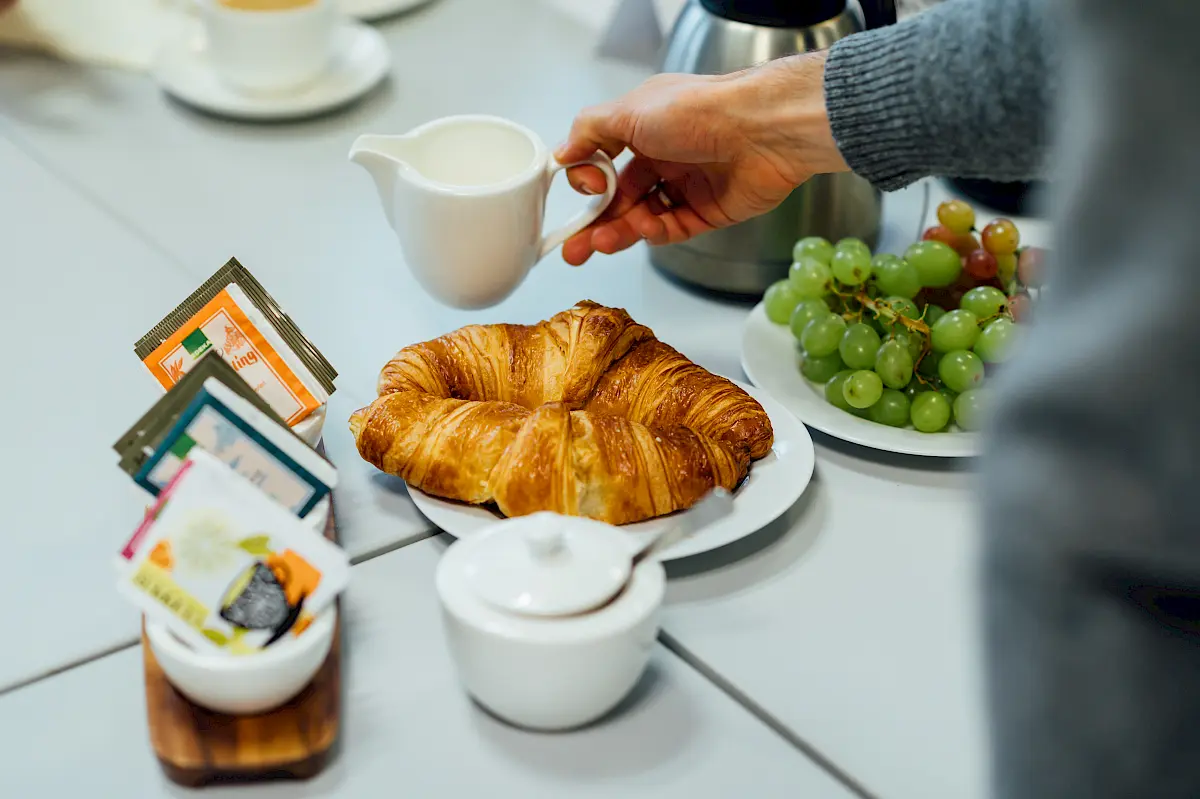The Ukraine Breakfast Debate on 14 October 2020 focused on the significance of the local elections in Ukraine held a week later on 25 October. They were the first local elections following the implementation of major elements of the decentralisation reform that has been initiated in 2014. The newly elected members of the three Ukrainian local governance levels — oblast, district and hromada — have obtained new competencies and more resources than ever before. In addition, Ukrainians were able to vote for representatives of the newly created amalgated territorial communities or amalgated hromadas, which were created in the scope of the administrative reform, for the first time.
After the welcoming address by the director of our institute, Katrin Böttger, the word was handed over to the guests of the event, Oleksiy Haran, Research Director at the Democratic Initiatives Foundation and Professor of Political Science at the Kyiv-Mohyla Academy, and Nazar Boyko, Head of the civil society organisation CIFRA (Lviv), which also does election monitoring. The discussion was moderated by GURN project manager Ljudmyla Melnyk.
Among the most important findings of the discussion were the following factors:
Acting President Volodymyr Zelensky’s party, “Servant of the People”, was facing strong competition from newly emerging local parties not yet represented in the national parliament. In line with the election campaign phenomenon of personalisation that is common in Ukraine, many of these parties relied on locally known leaders rather than a sophisticated election programme. Their top candidates were often well-known faces from the local administration, whose executive experience stands for stability. Stability that many Ukrainian citizens long for, especially during the COVID-19 pandemic.
Some of the national parliamentary parties, which compete for votes at the local level, made use of propagandistic and divisive slogans — not without success. According to surveys at the time, the pro-Russian “Opposition Platform — For Life” led many constituencies in the South and East of the country. According to one survey, the same districts also had the highest number of people, who believed that the local elections could potentially be subject to manipulation.
President Zelensky himself had announced an additional five-question national poll for the day of the local elections just a few weeks before the election — an initiative that can be seen as an attempt to influence the election results in favour of his party “Servant of the People”. Furthermore, Zelensky used the colours and symbols of his party instead of those of the Ukrainian state in his official appearances as president.
During the ensuing discussion, participants of the event asked questions about the possibility of postal voting, the potential for conflict between the national parliamentary level and the regional levels, and they were also interested which local parties could have the potential to make it to the national parliament in the future.
The 19th Ukraine Breakfast Debate took place within the framework of the “German Ukrainian Researchers Network” project (GURN 1, 2019-2020). The format has been continued since March 2021 as part of the GURN 2 project and is funded by the Federal Foreign Office.
 Share publication
Share publication








